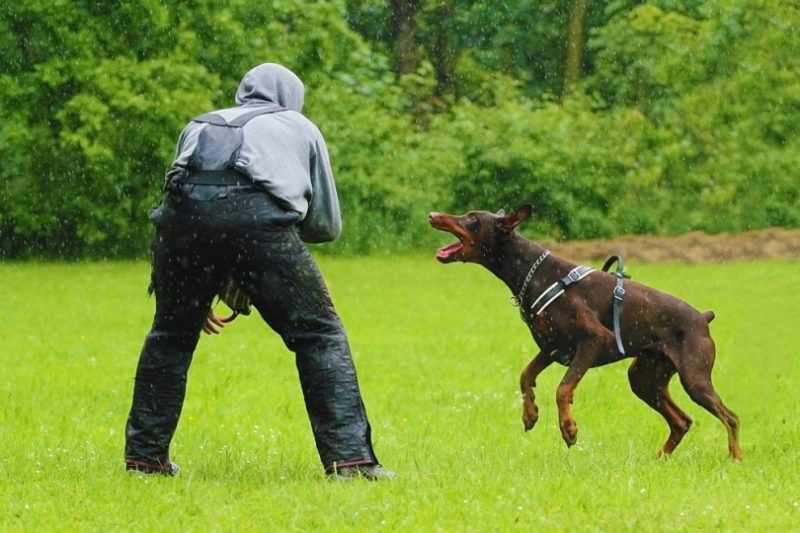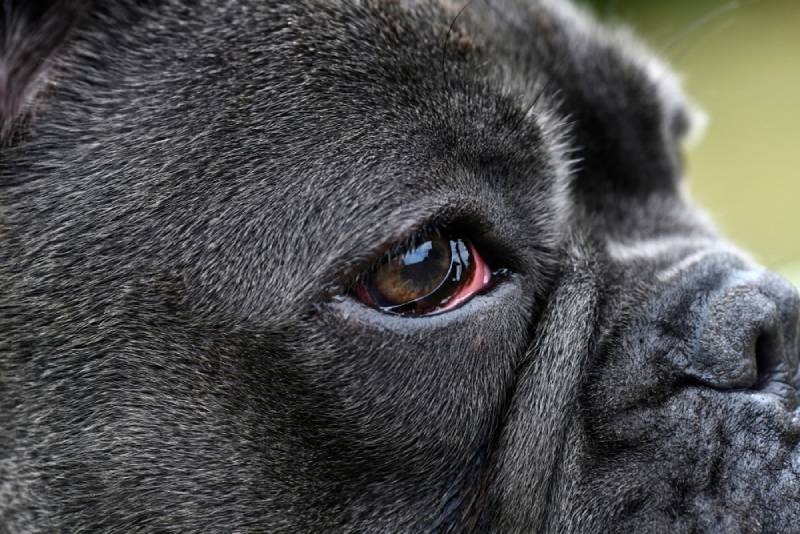Why Is My Shih Tzu Shaking? 11 Reasons & Solutions (Vet Answer)

Updated on

Shih Tzus are unique and adorable companions; if you own one, they probably don’t leave your side very often. If that is the case, you may detect precisely when something is different, and if your Shih Tzu is new to the family, you may be concerned about troubling behavior.
If your darling Shih Tzu is shaking, it may concern you as a parent. The shaking can be due to many reasons. Some causes are no need for concern and can easily be remedied, while some may need medical assistance from your veterinarian. If you are in a doubt or your dog is displaying any other signs or illness and isn’t quite right, contact your vet immediately.
In this article, we’ll cover some of the most likely reasons your Shih Tzu could be shaking to help you know what to do next, but this list isn’t exhaustive and is not a replacement for specific veterinary advice and examination.
The 11 Likely Reasons Why Your Shih Tzu Shaking
1. Your Shih Tzu May Be Cold or Running a Fever
Your Shih Tzu may be shivering. If the temperature of the environment drops to a level that your Shih Tzu cannot handle comfortably, particularly if they got wet, your pup may shiver to try to keep warm.
Even though Shih Tzus have long coats, they can still feel the cold. However, this may depend on where you live. Consider your environment and the temperature and determine whether your Shih Tzu is just cold before worrying too much.
However, shivering and shaking may also indicate a fever. Speaking to your vet is important if you believe your Shih Tzu is not well or they are shivering while being in a warm indoor environment, and measuring their rectal temperature may reveal if they are pyrexic. Being lethargic and slow and eating less or no food at all often accompanies an elevated body temperature, but sometimes the signs may be subtle.
Drying up and warming up your dog with a cozy jersey or blanket and getting them out of the cold and wet weather will help. If you have a fireplace, you can make a fire and place your dog’s bed close by or move your dog to a warmer room with heating. Keep your Shih Tzu indoors when it’s cold outside.

If your dog is not wet and it’s not cold inside, they may be shaking because of a fever. Contact your vet and get them checked promptly, as a fever usually indicates an underlying health issue. In that case, don’t wrap them up in a blanket so as not to increase their temperature further.
2. Fear or Anxiety
If your dog shakes their entire body for no apparent reason, it could be due to stress or anxiety. This may be the case if there is sudden or loud noise, such as a thunderstorm or fireworks. Along with shaking, your dog may be whining, drooling, have dilated pupils, or may want to hide away. Check if your Shih Tzu displays any of these signs along with shaking to determine if they are stressed.
Identify the cause of their stress and fear and try and eliminate it if possible. If your dog suffers with anxiety, anticipate stressful events and speak to your vet about possible calming supplements. Reassure them in times of stress. In the case of loud noise, keep the radio and TV on to reduce the outside sounds and consider pheromone diffusers or calming collars.
3. Excitement
Shaking can be a clear sign of an excited dog. They usually get excited when you return home from work, when they are about to go for a walk, during playtime, or before mealtime. A dog’s enthusiasm towards their owner is normal, and there are no reasons for concern. You may want to try to calm them down if they get so overly excited that they urinate or jump at you.
While shaking from excitement is common in dogs, you can help your Shih Tzu relax by keeping your greetings short and calm. Also, consider teaching your dog to sit before greeting them, and do not reward them with attention when they’re jumping up; instead, use positive reinforcement with treats or toys when they are calm.

4. Urgency to Go Outside
Some dogs may get excited and shake, running to the door or whining in order to tell you they need the toilet – right now. Occasionally, if your dog has a stomach upset and has developed loose stools, there may be more of an urgency when it comes to going outside, as they may not be able to control their motions.
Similar may happen if they need to urinate urgently. If your dog is shaking and wanting to go out, follow them and observe their behavior. If they have diarrhea, a sudden strong urge to eat grass, they vomit, strain to defecate, or have any issues passing urine, such as pain and increased frequency, these are all clear signs they have an underlying medical issue affecting their digestive or urinary tract. Pain due to these and other conditions may also cause shaking.
Get your Shih Tzu checked out by the vet if they are shaking, not eating or eating less, or having diarrhea, blood in stools, straining to poop, or urinary issues, such as painful or frequent urination, blood in urine, excessive drinking, etc. Your vet will diagnose the issue and prescribe your pooch with appropriate treatment, then giving you instructions on caring for your dog at home.
5. Generalized Tremor Syndrome
GTS, or shaker syndrome, is a condition in which a certain body area or sometimes the dog’s entire body may shake. The cause remains unknown, although it is believed to be an autoimmune condition because it’s usually responsive to steroid treatment. It affects the cerebellum that is responsible for the coordination and regulation of voluntary muscular movement and is most commonly linked to mild central nervous system disease.
GTS symptoms typically appear between 1 and 2 years old, and the shaking caused by this condition may be confused with hypothermia or anxiety.
Your vet will conduct a thorough physical exam on your dog, and you will be required to provide a detailed history of your dog’s physical and behavioral health prior to the onset of signs. Blood testing, radiographs, and a referral to a neurologist for advanced imaging of the brain and cerebrospinal fluid sampling may be required in some cases. Treatment will depend on the severity of the tremors and your dog’s overall condition. Corticosteroids are used to reduce the inflammatory response in the body and are most commonly used for GTS. Most dogs recover in 1 to 2 weeks, but some may require other immunosuppressants and long-term therapy.

6. Distemper
Canine distemper is a common cause of dog tremors. It is a highly contagious, frequently fatal viral disease that affects a dog’s respiratory, gastrointestinal, and nervous systems. Distemper signs include eye and nose discharge, fever, vomiting, low appetite, sneezing, and coughing. Unvaccinated or partially vaccinated dogs, particularly puppies, are especially vulnerable. Luckily, due to widespread vaccination programs in dogs, this disease is not as common as it used to be.
Distemper-infected dogs should be kept completely isolated from other animals and require intensive medical care. Treatment and their outcome will vary depending on the signs the dog is experiencing. Intravenous fluid therapy, anti-vomiting medications, and antibiotics may be required for gastrointestinal support. Hospitalization and monitoring, as well as anti-seizure medications, may be necessary for neurological support. Oxygen therapy, antibiotics, and hospitalization may be required for respiratory support.
Unfortunately the illness is often fatal, and vaccinating your puppy and keeping up with their regular boosters is crucial in preventing such a serious disease to be contracted or spread in a dog population. Dogs that survive the illness may continue having body tremors and twitching, or even frequent seizures.
7. Toxin Ingestion
Tremors or shaking in dogs can be caused by various toxins or poisons that your Shih Tzu may have ingested. The most common toxins come from food, plants, household products, and medication. Some substances are harmless to humans but toxic to pets, so make sure your Shih Tzu hasn’t consumed anything it shouldn’t have.
If you suspect your dog ate something potentially harmful, consult your vet immediately, as it may be a medical emergency. Detecting the potential poisoning is the first step toward preserving your dog’s health. Gather as much information as possible if you know what your pet ate.
Depending on what your dog has ingested, they may require a unique treatment protocol, usually based on your vet safely inducing vomiting, decontaminating their digestive tract with activated charcoal, and supporting them through the signs with the help of intravenous fluids and supportive medication. Unfortunately, it’s a race against time because some substances absorb faster than others.

8. Low Blood Sugar
Shaking may result from a sudden blood glucose level change when the blood sugar level is lower than normal. This is called hypoglycemia. When the amount of sugar in the bloodstream falls too low, the body begins to exhibit signs of insufficient energy, which may include lethargy, low appetite, disorientation, shaking, and seizures.
Low glucose levels in a dog can be life threatening, and this condition must be treated as soon as possible. Bring your pet to a veterinarian right away if you suspect they may have hypoglycemia, but this condition can only be confirmed by your vet measuring the dog’s blood glucose levels. If your dog is diabetic and they had more insulin than prescribed by mistake or have not eaten but have had their injection, they need to be seen by your vet.
Minor signs may only require oral glucose, but hospitalization may be required if signs are more severe. The severity of the condition and the underlying cause will determine the course of treatment. In case of sepsis, infection, congenital disorders, cancer, and toxicity, further investigations and intensive treatment is required.
9. Old Age and Pain From Injuries
Sadly, like humans, our dogs get old too. Some dogs develop weakness in their hind legs or front legs, which manifests as shaking. Other signs of aging in your dog include intolerance to exercise or reduced and stiff movement. It’s not uncommon for this to happen as they age, but excessive shaking can signify pain, particularly joint pain. Even young dogs may shake due to a painful injury that may have not been obvious at the time, such as a back or a leg injury. Alongside shaking, they may be hunched or have a limp, or in more severe cases, they may struggle to use one or more legs.
Get your dog checked out by the vet, as orthopedic injuries and arthritis are painful and should be managed with pain medication. If left untreated, they can cause your dog severe mobility issues and ongoing discomfort.
If your Shih Tzu, no matter their age, is struggling to walk, has a sore, stiff or hunched back, or is limping on one of their legs, they should see the vet urgently. Your vet may perform X-rays to locate the site and extent of injury and will recommend thick bedding, such as memory foam or an orthopedic pad, to help your dog feel more comfortable and ease the pain. Make sure your dog’s bed is big enough for them to stretch out and relieve pressure on sore joints.
Weight loss is integral to relieving a dog’s joint pain if they are overweight, and physical therapy, hydrotherapy, massage, and muscle strengthening exercise can all be highly beneficial.

10. Seizures and Tremors
Uncontrollable shaking can be a manifestation of a seizure. A seizure results from abnormal activity in the brain, which leads to involuntary muscle contractions and even altered consciousness. A grand mal seizure will cause the dog to collapse, paddle with their legs, urinate or defecate at the time without their control, drool, or appear dazed and confused. Shaking can occur just before or after a seizure as well as during the seizure activity. Some types of partial seizures may exhibit just as shaking without the other signs.
Tremors are uncontrollable muscle movements of some body parts, rather than being generalized, and the dog is usually awake and aware of their surroundings. Various issues can cause tremors and seizures, such as toxicity, head trauma, metabolic disease, organ system failure, inflammation, structural changes, or cancer of the brain, as well as idiopathic epilepsy, where the cause remains unknown.
If your dog has tremors or seizures, your vet will run some medical tests, perform X-rays, or recommend a referral to a neurologist to determine the cause. Once your dog has been diagnosed, your veterinarian will implement a treatment plan that may include therapies targeted at specific underlying causes as well as medications to control tremors or seizures. If your dog has tremors, some lifestyle changes may be required, depending on the cause and extent of the condition.
11. Other Illness
Many other underlying medical conditions and illnesses, such as infections, inflammation, cancers, and more, may cause your dog to feel uncomfortable and unwell, and this can lead to shaking. As you’ve seen from the long list of just some of the most common reasons for dogs shaking, it’s a non-specific sign, and without further investigations, it may be difficult to pinpoint the exact cause.
Your Shih Tzu should be examined by the veterinarian who can perform various tests in order to get down to the cause of your dog’s discomfort and shaking. Treatment will depend on the diagnosis, and the sooner they are treated, the sooner they will feel more comfortable.
Final Thoughts
Shaking is one of those actions that can leave you feeling confused and concerned as a dog parent. If you know your dog well, you will know immediately if something is out of the ordinary, but if your Shih Tzu is new to the family, you will need to know about the potential cause for their shaking to gauge how serious it may be. If you are upset that your dog is shaking for reasons other than being cold, excited, or stressed, it’s best to make an appointment with your vet for professional advice.
Featured Image Credit: Steshka Willems, Pexels












